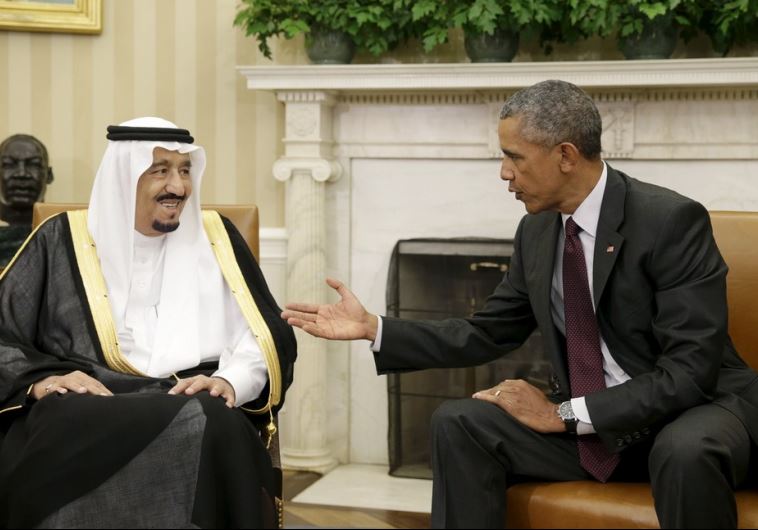'After cutting Iran ties, Saudis don't care if they anger White House'
Saudi Arabia used an attack on its embassy in Tehran as a pretext to fuel tensions, Iran's foreign ministry said on Monday.
 US President Barack Obama (R) welcomes Saudi King Salman to the White House
US President Barack Obama (R) welcomes Saudi King Salman to the White House